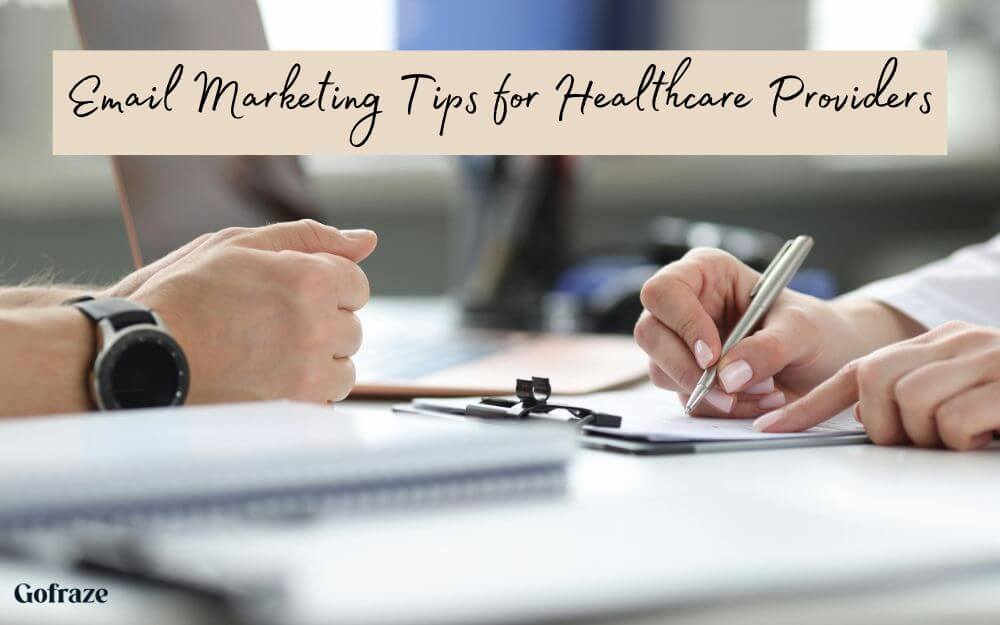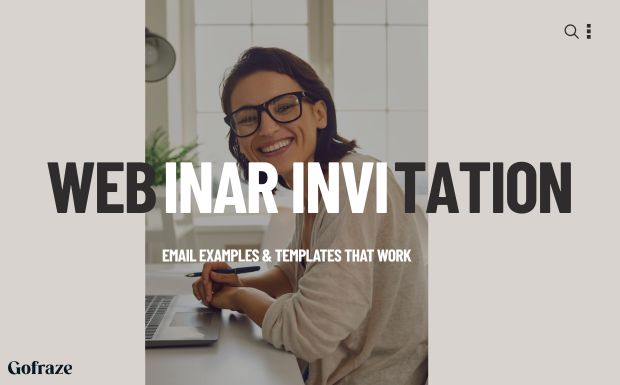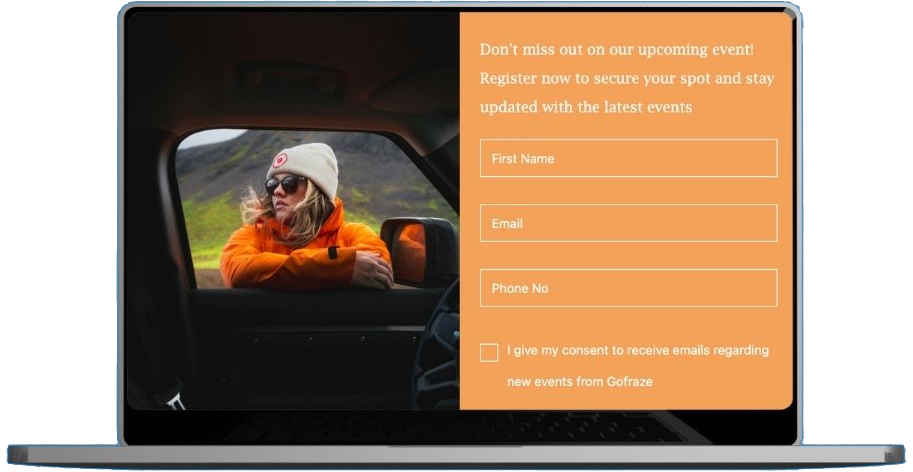Email Marketing for Car Dealerships: Strategies, Ideas & Best Practices
Explore powerful email marketing strategies for car dealerships. Learn to attract, engage, and convert leads into loyal customers with ease.
In today’s digital landscape, email marketing remains one of the most effective communication channels, particularly in the healthcare industry. With increasing patient expectations for personalized and timely communication, healthcare providers must leverage email marketing to enhance patient engagement, streamline operations, and build long-term trust. This guide explores the importance of Healthcare Email Marketing, best practices, and the tools that can help providers implement successful campaigns.
Healthcare email marketing involves the use of targeted email campaigns to communicate with patients, healthcare stakeholders, and medical professionals. These emails can serve various purposes, such as:
By implementing strategic healthcare email marketing, healthcare providers can maintain consistent and meaningful engagement with their audience while ensuring compliance with healthcare regulations like HIPAA.
Email marketing offers numerous advantages for healthcare providers, including:
Regular communication through personalized emails helps patients feel more connected to their healthcare providers. These emails can include reminders for upcoming check-ups, vaccination schedules, and personalized wellness tips. Engaging content such as health blogs, diet plans, and self-care tips encourages patients to take an active role in their well-being. A well-structured email strategy fosters patient loyalty and strengthens the provider-patient relationship.
Missed appointments can disrupt treatment plans and lead to inefficiencies in healthcare scheduling. Automated email reminders sent a few days before an appointment help patients remember and prepare for their visits. These emails can also include rescheduling options, pre-appointment instructions, and necessary paperwork. By reducing no-shows, healthcare providers can optimize their schedules and improve patient care outcomes.
Healthcare organizations can use email marketing to share valuable insights on disease prevention, treatment options, and lifestyle modifications. Sending out newsletters with expert advice on managing chronic conditions, mental health, and fitness can empower patients to make informed decisions. These emails can also debunk myths, clarify common health misconceptions, and promote early detection screenings. Educating patients through well-researched content enhances awareness and overall well-being.
Patients trust healthcare providers who consistently deliver reliable and empathetic communication. Regularly providing expert-backed health advice, recovery success stories, and community updates reassures patients of a provider’s credibility. Emails that address patient concerns, highlight new medical advancements, and show a commitment to patient care help build a long-term rapport. A strong relationship between patients and providers leads to higher retention and satisfaction rates.
Healthcare emails must comply with strict privacy regulations like HIPAA to protect patient information. Using a HIPAA-compliant email marketing platform ensures that all communications are encrypted and secure. Patients should be informed about data usage policies and given the option to manage their preferences. By prioritizing security and transparency, healthcare providers can build trust and protect sensitive patient data.
Automated email reminders ensure that patients do not forget their scheduled visits, reducing missed appointments and improving overall healthcare efficiency. These emails can include pre-appointment instructions, required documents, and rescheduling options if needed. After the appointment, follow-up emails can provide post-visit care tips, prescription reminders, and patient satisfaction surveys.
Example:
Subject: Reminder: Your Appointment on [Date] at [Time] with Dr. [Last Name]
Body:
Dear [Patient’s Name],
This is a friendly reminder about your upcoming appointment with Dr. [Last Name] on [Date] at [Time]. Please arrive 10 minutes early and bring your insurance card. If you need to reschedule,
click [Reschedule Appointment].
Looking forward to seeing you!
[Clinic Name]”
Follow-up Example:
Subject: How Was Your Visit? Share Your Feedback!
Body:
Dear [Patient’s Name],
Thank you for visiting us on [Appointment Date]. Your feedback helps us improve our services. Please take a minute to complete our short survey: [Survey Link].
Wishing you good health,
[Clinic Name]”
Healthcare providers can send informative emails during specific seasons to help patients stay healthy. These emails may focus on flu shots, allergy prevention, hydration during summer, or mental health tips during winter. Seasonal campaigns show that healthcare providers are proactive in patient care and encourage preventive healthcare measures.
Example:
Subject: Stay Safe This Flu Season – Get Your Flu Shot Today!
Body:
Dear [Patient’s Name],
Flu season is here! Protect yourself and your loved ones by getting your flu shot at [Clinic Name]. Vaccinations are available from [Start Date] to [End Date]. Schedule your appointment today and stay healthy this winter.
[Book Your Flu Shot]
Best,
[Clinic Name]”
After a patient’s visit or treatment, sending a satisfaction survey helps healthcare providers gather valuable feedback. Additionally, check-in emails for patients with chronic conditions (e.g., diabetes, heart disease) or post-surgical patients show continued care and support. These emails can include wellness check-ins, medication reminders, or an option to schedule a follow-up.
Example:
Subject: We Care About Your Experience – Share Your Feedback
Body:
Dear [Patient’s Name],
Thank you for choosing [Clinic Name]. We would love to hear about your experience. Your feedback helps us improve and serve you better. Please take a moment to complete our quick survey: [Survey Link]
Thank you,
[Clinic Name]”
Check-in Example:
Subject: How Are You Feeling? Let Us Know!
Body:
Dear [Patient’s Name],
We hope you’re doing well since your last visit. If you have any concerns, questions, or need to schedule a follow-up, we’re here for you. Click below to book your next appointment or speak with our care team.
[Schedule Follow-up]
Take care,
[Clinic Name]”

Healthcare providers should personalize emails by segmenting patients based on age, medical history, chronic conditions, or treatment progress. For example, diabetes patients can receive diet and exercise tips, while expectant mothers can get pregnancy-related updates. Targeted emails ensure patients receive relevant and valuable information, improving engagement and care adherence.
Patient privacy is crucial in healthcare email marketing, making it essential to use HIPAA-compliant email platforms like Paubox, Virtru, or LuxSci. These tools encrypt sensitive patient data, ensuring secure communication while meeting legal and ethical standards. Failing to comply with HIPAA regulations can lead to legal penalties and loss of patient trust.
Emails should be written in a simple, easy-to-understand language, avoiding medical jargon that might confuse patients. A compassionate tone reassures patients, making them feel valued and supported. For example, instead of “Your hypertension treatment requires adherence to prescribed pharmacological interventions,” say, “Taking your prescribed medicine daily helps keep your blood pressure under control.”
Every healthcare email should have a clear and actionable call-to-action (CTA) that directs patients on the next steps. CTAs like “Schedule Your Check-up,” “Get Your Flu Shot Today,” or “Complete Our Survey” encourage immediate responses. Placing CTAs prominently in the email increases engagement, helping patients take timely actions for their health.
When selecting an email marketing tool, healthcare providers should consider the following factors:
The platform must have security features that align with healthcare privacy regulations.
Automated workflows for appointment reminders, follow-ups, and educational campaigns help streamline patient communication.
The ability to segment and personalize emails based on patient history and preferences enhances engagement.
User-friendly interfaces ensure that healthcare professionals can create, schedule, and track emails without technical difficulties.
Data-driven insights help measure email campaign effectiveness and refine strategies for better patient communication.
Gofraze is a specialized email marketing platform designed for healthcare providers, offering automation, patient segmentation, and HIPAA-compliant features. It allows clinics and hospitals to send appointment reminders, health tips, and personalized patient engagement emails effortlessly. The platform’s intuitive interface and Customizable Templates make it easy to create impactful email campaigns. With advanced analytics, healthcare organizations can track open rates and optimize their messaging strategies.
Mailchimp is an excellent choice for beginners, providing easy-to-use templates, automation, and A/B testing features to enhance email performance. It enables healthcare providers to create visually appealing newsletters, appointment reminders, and educational campaigns. The platform also offers segmentation tools to target different patient groups effectively. Additionally, Mailchimp’s analytics dashboard helps track engagement and improve future email strategies.
Moosend is a budget-friendly email marketing platform that offers powerful automation and segmentation features. Healthcare providers can personalize patient communication by sending tailored emails based on medical history and appointment schedules. The drag-and-drop email editor simplifies the creation of engaging newsletters and educational content. Moosend also provides detailed reporting, allowing organizations to measure campaign success and optimize email strategies.
HubSpot integrates advanced CRM features with healthcare marketing automation, making it a comprehensive tool for patient engagement. It enables healthcare providers to manage patient interactions, automate follow-up emails, and nurture leads effectively. With its robust analytics and personalization options, providers can deliver targeted health campaigns. HubSpot’s compliance features also help ensure secure and regulated email communication.
Constant Contact is a user-friendly email marketing solution ideal for sending patient newsletters, appointment updates, and health-related content. Its simple interface makes it easy for healthcare providers to design professional emails without technical expertise. The platform offers strong deliverability rates, ensuring emails reach patient inboxes reliably. Additionally, Constant Contact includes list segmentation and automation features to improve engagement and retention.
Gofraze offers a HIPAA-compliant, easy-to-use email marketing platform designed specifically for healthcare providers. Automate appointment reminders, send personalized wellness tips, and improve patient engagement—all from one powerful dashboard.
Healthcare Email marketing is a powerful tool for healthcare providers to improve patient engagement, enhance communication, and build trust. By leveraging automation, segmentation, and HIPAA-compliant platforms, healthcare organizations can streamline their email marketing efforts and provide better patient care.

Explore powerful email marketing strategies for car dealerships. Learn to attract, engage, and convert leads into loyal customers with ease.

Learn how to craft the perfect webinar invitation email using key tips, templates, and examples to boost sign-ups and engagement.

Discover winning sports newsletter examples, essential elements, and expert tips to craft high-impact email campaigns your fans will love.

Get unlimited forms that turn your traffic into real subscribers — totally free
Start now - free forever